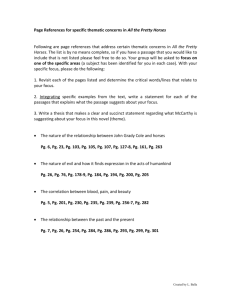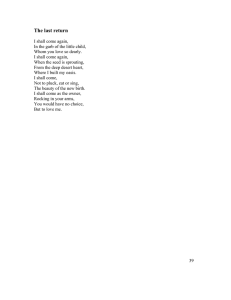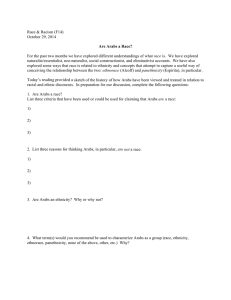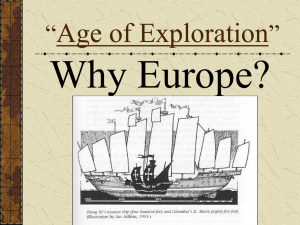VU—02—English (C) ¥… Æ˙π` ={……v™……™… {…Æ˙“I
advertisement
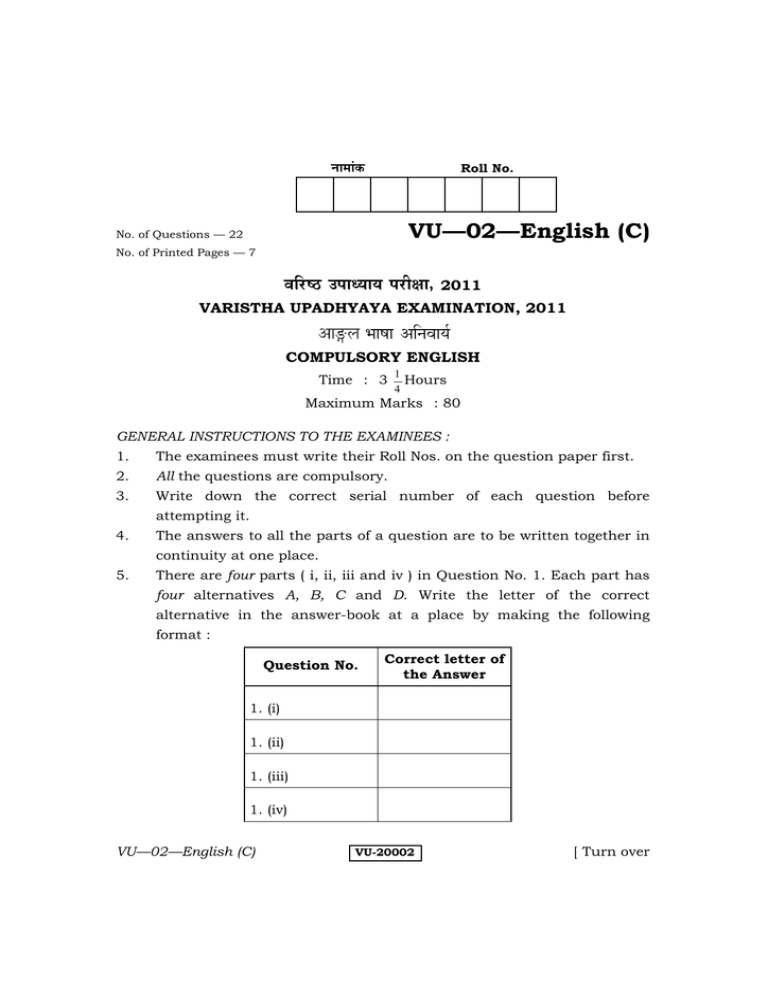
Roll No.
x……®……ΔEÚ
VU—02—English (C)
No. of Questions — 22
No. of Printed Pages — 7
¥… Æ˙π`ˆ ={……v™……™… {…Æ˙“I……, 2011
VARISTHA UPADHYAYA EXAMINATION, 2011
¶……π…… + x…¥……™…«
COMPULSORY ENGLISH
Time : 3
1
4
Hours
Maximum Marks : 80
GENERAL INSTRUCTIONS TO THE EXAMINEES :
1.
The examinees must write their Roll Nos. on the question paper first.
2.
All the questions are compulsory.
3.
Write down the correct serial number of each question before
attempting it.
4.
The answers to all the parts of a question are to be written together in
continuity at one place.
5.
There are four parts ( i, ii, iii and iv ) in Question No. 1. Each part has
four alternatives A, B, C and D. Write the letter of the correct
alternative in the answer-book at a place by making the following
format :
Question No.
Correct letter of
the Answer
1. (i)
1. (ii)
1. (iii)
1. (iv)
VU—02—English (C)
VU-20002
[ Turn over
2
1.
Write the letters A, B, C or D of the correct prepositions in the format
drawn by you in your answer-book :
(i)
(ii)
They went .............. a mustard field to reach the other side of it.
(A)
on
(B)
over
(C)
in
(D)
through.
1
2
The gatekeeper was standing ............ the main gate.
(A)
in
(B)
on
(C)
at
(D)
over.
1
2
(iii) A wooden table is made .............. wood.
(iv)
2.
3.
4.
5.
(A)
with
(B)
of
(C)
from
(D)
in.
1
2
The boy had broken the window ............. a stone.
(A)
with
(B)
by
(C)
from
(D)
for.
1
2
Fill in the blanks with correct determiners :
(i)
............... that glitters is not gold.
1
(ii)
The bus will take .............. hour to reach the small village.
1
Change the following sentences into indirect speech :
(i)
The mother said to her son, “Will you not go to school today ? ” 1
(ii)
The doctor said to the patient, “Take this medicine three times a
day.”
1
Change the following sentences into passive voice :
(i)
Do not insult the poor.
1
(ii)
Someone is knocking at the back door.
1
Fill in the blanks with suitable modals to express the idea the words in
the brackets indicate :
(i)
All the students ................ get up early tomorrow morning.
( obligation )
(ii)
6.
1
The old man .................. tell us funny stories daily when we
were in our village.
( habitual action )
1
Combine each set of sentences into one complex sentence :
(i)
His step brother is a farmer. He lives down the hill.
1
(ii)
When will the bus come ? Can you tell me that ?
1
VU—02—English (C)
VU-20002
3
7.
8.
9.
10.
Write the appropriate phrasal verbs in the following sentences forming
them with the help of the verbs given in the brackets :
(i)
Most of the students of our class ................ the examination last
year.
( get )
1
(ii)
Parents should ................. their children in a good atmosphere.
( bring )
1
(iii) The staff and the students must .................. the Principal’s
orders.
( carry )
1
Phonetically transcribe the following words in your answer-book :
(i)
amount
1
(ii)
take.
1
Mark the stress at the right place in the following words :
(i)
asleep
1
(ii)
below
1
(iii) appear.
1
Read the following passage carefully and answer the questions given
below :
Unable to stand his persuasions any more, his mother agreed to
see the picture on the last day. They went to the night show. She sat
in the women’s class. She had to screw up all her courage to sit down
for the picture. She had a feeling of great relief as long as the slide
advertisements, and trailer pieces lasted. When the picture began, her
heart beat fast. Her husband talking to his wife on the screen, playing
with his child, singing, walking, dressing ; same clothes, same voice,
same anger, same joy — she felt that the whole thing was a piece of
cruelty inflicted on her : it had the fascination of a thing which is
painful. And then came a scene in which he reclined in a chair reading
a newspaper.
How he could sit absorbed in a newspaper ! In their years of
married life, how often had she quarrelled with him for it ! Even on the
last day he had sat thus after dinner, in his canvas chair, with the
newspaper before him : she had lost her temper at the sight of it and
said, ‘You and your newspaper !’
VU—02—English (C)
VU-20002
[ Turn over
4
(i)
(ii)
Why did Sambu’s mother agree to see the picture ?
When did she agree to see the picture ?
1
1
(iii)
How long did Sambu’s mother feel a great relief ?
1
(iv)
How did she feel when she saw her husband play, sing, walk and
talk on the screen ?
1
(v)
Why was the picture a painful fascination for Sambu’s mother ? 1
(vi)
Why did she often quarrel with her husband in the past ?
1
(vii)
When had she lost her temper ?
1
(viii) Write from the passage the words which mean :
11.
(a)
attracted
(b)
overcome fears.
1
2
1
2
Answer the following question in about 60 – 80 words :
Describe the merits of purity.
( Purity is Power )
4
OR
Write in brief the life history of malaria parasite in the stomach of a
mosquito.
( Ronald Ross )
4
12.
Answer any four of the following questions in about 20 – 30 words
each :
(i)
Why did the narrator not post the letter after having written the
first note ?
( Third Thoughts )
1
( A Walk through the Fire )
1
(ii)
What was the souvenir ?
(iii)
What is the characteristic of a great critic ?
( On Reading In Relation to Literature )
(iv)
(v)
(vi)
1
What is the impact of the cortisol hormone at normal level ?
( How Yoga Heals )
1
( The Seven Ages of Man )
1
How does a man play the role of a lover ?
How does the poet imagine during his travel towards the sun ?
( A Boy’s Song )
VU—02—English (C)
VU-20002
1
5
13.
14.
15.
Answer the following question in about 60 – 80 words :
What improvements did Michael Obi want to bring about in Ndume
Central School ?
( Dead Men’s Path )
4
OR
Describe in brief the character-sketch of Gafur.
( Drought )
4
Answer any four of the following questions in about 20 – 30 words
each :
(i)
Why did Ramanujam’s father-in-law write frequently to him ?
( The Missing Mail )
1
(ii)
What did Babuli mention in the slip of paper he gave to his elder
sister-in-law before coming back to Bhubaneshwar ?
( The Tribute )
1
(iii) What did the priest teach children at the temple ?
( The Portrait of a Lady )
1
(iv) Why did the Imp teach the peasant to make vodka ?
( The Imp and the Peasant’s Bread )
1
(v)
What did the young village boys decide to start as resolution ?
( Resolution )
1
(vi) What message does the author convey through the story of
‘Svayamvara’ ?
( The Guitar Player & Svayamvara )
1
Read the following passage and answer the questions that follow :
A great part of Arabia is desert. Here there is nothing but sand
and rock. The sand is so hot that you cannot walk over it with your
bare feet in the daytime. Here and there in the desert are springs of
water that come from deep down under the ground — so deep that the
sun cannot dry them up. These springs are few and far apart, but
wherever there is one, trees grow tall and graceful, making a cool,
green, shady place around the spring. Such a place is called an oasis.
The Arabs who are not in the cities live in the desert all the year
round. They live in tents that can be put up and taken down very
easily and quickly so that they can move from one oasis to another,
seeking grass and water for their sheep, goats, camels and horses.
These desert Arabs eat ripe, sweet figs, and also the dates that grow
upon the palm trees; they dry them, too, and use them as food all the
year round.
VU—02—English (C)
VU-20002
[ Turn over
6
These Arabs have the finest horses in the world. An Arab is very
proud of his riding horse, and loves him almost as much as he loves
his wife and children. He never puts heavy loads upon his horse, and
often lets him stay in the tent with his family.
(i)
Why do the Arabs live in tents in the desert ?
1
(ii)
What is an oasis ?
1
(iii)
Why do the Arabs go from one oasis to another ?
1
(iv)
What do they eat in the desert ?
1
(v)
Why are the Arabs proud of their riding horses ?
1
(vi)
How much do they love their horses ?
1
(vii)
How do the Arabs take care of their horses ?
1
(viii) Write from the passage the word which means :
a large sandy piece of land.
1
16.
Write a letter to your friend suggesting him to utilise his leisure in his
daily routine.
4
17.
Read the following passage carefully and summarise it to its onethird :
4
Morals and manners which give meaning to life, are of greater
importance than laws. The law touches us here and there, but
manners are about us everywhere. They pervade society like the air we
breathe. Good manners are neither more nor less than good
behaviour, consisting of courtesy and kindness. Politeness costs
nothing but buys everything. The cheapest of all things is kindness. Its
exercise requires the least possible trouble and self-sacrifice. If we
would only act kindly, the result in regard to social good and
happiness would be incalculable.
18.
Your school is going to celebrate its Annual Day next week. Draft an
invitation.
4
19.
Write an essay in about 225 words on the following :
My favourite game
OR
Ambition of my life.
VU—02—English (C)
VU-20002
5
7
20.
21.
Imagine you are Paritosh. Once you went to Jaipur for police
recruitment. You had your dinner in a hotel. Develop a dialogue
between you and the waiter like this :
3
Waiter
: You are welcome here, sir.
Paritosh
: What vegetables you serve here ?
Explain the following with reference to the context :
(i)
3+3
Last scene of all,
That ends this strange eventful history,
Is second childishness and mere oblivion,
Sans teeth, sans eyes, sans taste, sans everything.
OR
Although it fall and die that night —
It was the plant and flower of Light
In small proportions we just beauties see;
And in short measures life may perfect be.
(ii)
And so the sunward way
I soar on the eagle’s wings,
And in my heart all day
The blue-tit sings.
OR
Making everything afraid,
Wrinkling up his little face,
As he cries again for aid;
And I cannot find the place !
22.
Define any two of the following literary terms :
(i)
Essay
1
(ii)
Satire
1
(iii) Soliloquy
1
(iv)
1
Ode.
VU—02—English (C)
VU-20002
[ Turn over

